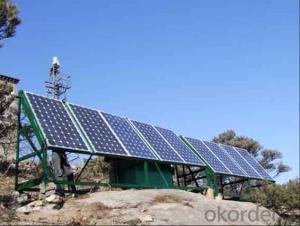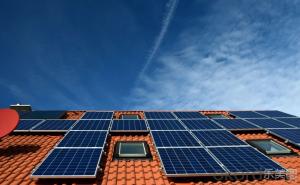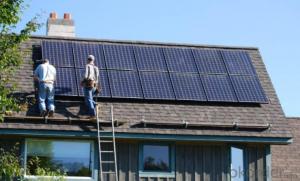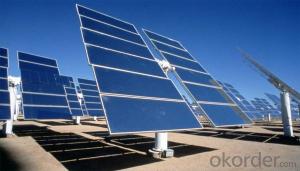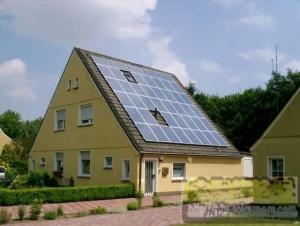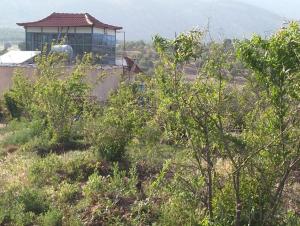Pratt Solar Energy Systems - Off-Grid Solar Power System 10KW High Efficiency
- Loading Port:
- China main port
- Payment Terms:
- TT OR LC
- Min Order Qty:
- 1 pc
- Supply Capability:
- 10000 pc/month
OKorder Service Pledge
OKorder Financial Service
You Might Also Like
1.Description of Product
Off-Grid Solar Power System is consisted of solar panel, solar charge controller, inverter, battery, mounting rack and cables.
(1).Grid-connected, send power to city grid
(2).MPPT technology, wide range of working voltage
(3).Simply Wiring, easy installation, customized design for your projects
(4).Low investment & long term feedback
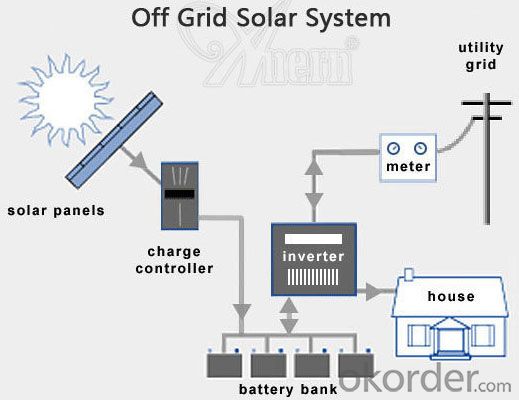
2. Off-Grid Features
1. Off grid solar power system is mainly used for application with relatively-small power consumption, and the areas have no grid network coverage, or grid power is unstable or outage condition.
2. It’s composed of solar panels, hybrid solar inverter, battery bank, solar panel mounting racks, and other accessories required fora complete home solar power system.
3. The battery bank gives a stable power output to the solar inverter which converts DC to AC to power loads, and provides power backup in rainy or cloudy days.
4. The solar panels generate electricity at daytime and charge the battery bank .
5. The off grid home solar power system provides grid power bypass in case of battery power shortage when sunshine is not enough.
6. All the off grid home solar power system configurations are worked out by scientific calculation and design.
The Product Parameter | |
Ref No. | 10KW |
Solar Panel | Type: Monocrystalline Silicon PV Module Max Power: 250W QTY:20 pcs |
Controller-Inverter Integrator | Rated Ouput Power: 7000W Rated DC Voltage: 96V QTY:1 pcs |
Battery | 12V/200AH per piece QTY:16 pcs |
Solar Panel Rack | Roof type mounting rack, anodized aluminum material, including complete fittings (Other type of racks can be customized as per client's requirement) QTY:1 pcs |
Cables | International standard, with specification suitable for solar system, BVV1*10 QTY:100m |
3.The Pictures of Product
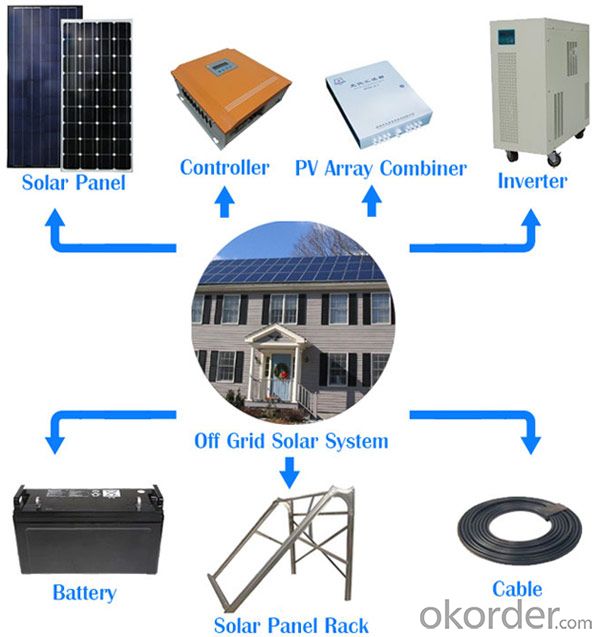
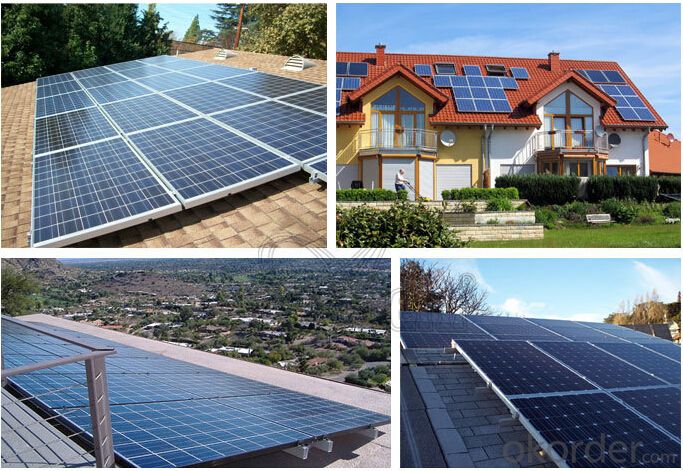
4.FAQ
Q1: What is the business type for the company?
A1: We are one of the biggest manufacturers inBejing.Chnia. Which is a high tech PV enterprise dedicated to the research, development, production and sales..
Q2: How long solar panel warranty can you offer?
A2: 10-Year product warranty,25-year linear power output warranty
If there is any quality problem, we will pay for freight and send free parts to you.
Q3: How many certificates do you have?
A3: We have 16 certificates,such as CE, TUV, UL, and so on.
Q4: Can I be the agent for you?
A4: Yes,We can discuss some information.
Q5: How to get a sample?How can cooperation with us
A5: contact us now.
- Q: Can solar energy systems be installed on roadways?
- Yes, solar energy systems can be installed on roadways. There are several innovative technologies being developed and tested which aim to integrate solar panels into roads and highways. These systems, often referred to as solar roadways, have the potential to generate clean energy while also providing other benefits such as lighting, heating, and even charging electric vehicles. However, the concept is still in its early stages and faces challenges in terms of cost-effectiveness, durability, and efficiency.
- Q: Is it possible to store excess solar energy for later use?
- Yes, it is possible to store excess solar energy for later use.
- Q: Can solar energy systems be used for powering transportation systems?
- Yes, solar energy systems can be used for powering transportation systems. Solar power can be harnessed through photovoltaic (PV) panels or concentrated solar power (CSP) systems to generate electricity. This electricity can then be used to power electric vehicles (EVs) or be converted into hydrogen fuel through electrolysis to power hydrogen fuel cell vehicles (FCVs). PV panels can be installed on vehicles or charging stations to directly charge the batteries of EVs. This technology is already being used in various electric cars and buses. Additionally, solar charging stations can be set up along highways or at designated parking lots to provide renewable energy for EVs on the go. For FCVs, solar power can be used to produce hydrogen through electrolysis, which splits water into hydrogen and oxygen using electricity. The hydrogen gas can then be stored and used to power FCVs, producing only water vapor as a byproduct. Solar-powered transportation systems offer numerous benefits. Firstly, they reduce dependence on fossil fuels, helping to mitigate climate change and reduce greenhouse gas emissions. They also contribute to energy independence and reduce reliance on imported oil. Solar energy is abundant, renewable, and widely available, making it a sustainable option for powering transportation. However, there are some challenges to consider. The efficiency of PV panels and hydrogen production technologies still need improvement to make solar-powered transportation more viable on a larger scale. Additionally, the initial cost of implementing solar energy systems for transportation infrastructure can be high, although the long-term operational costs are generally lower. Overall, solar energy systems have the potential to transform transportation by providing clean, renewable energy. As technology advances and costs decrease, solar-powered transportation will become increasingly feasible and widespread.
- Q: Can solar energy systems be used for powering hotels or resorts?
- Yes, solar energy systems can certainly be used for powering hotels or resorts. Solar panels can be installed on the rooftops of buildings or in open spaces to capture sunlight and convert it into electricity. This renewable energy source can help hotels and resorts reduce their reliance on traditional power grids, lower their energy costs, and contribute to a more sustainable and greener environment. Additionally, solar energy systems can be combined with battery storage to ensure uninterrupted power supply even during cloudy or nighttime conditions.
- Q: Can solar energy be used for large-scale power generation?
- Yes, solar energy can be used for large-scale power generation. With advancements in technology and decreasing costs of solar panels, solar power plants are being built around the world to generate electricity on a massive scale. These power plants can be grid-connected and provide clean and renewable energy to meet the increasing demand for electricity.
- Q: Can a solar energy system increase the value of my home?
- Your home's value can be increased by installing a solar energy system. Potential buyers view this as a valuable investment due to the financial and environmental advantages it offers. One benefit is that solar panels can significantly decrease or even eliminate your monthly electricity bills, which is appealing to prospective homeowners. This leads to long-term savings for the new owners, making the property more attractive. Additionally, solar panels are considered an eco-friendly and sustainable energy solution, which is becoming increasingly important to many homebuyers. As the world moves towards a more environmentally conscious future, properties with solar energy systems are seen as highly desirable and can attract a wider range of potential buyers. Studies have proven that homes with solar panels sell faster and at higher prices compared to similar properties without them. The Lawrence Berkeley National Laboratory conducted research that revealed homes equipped with solar panels typically sold for an additional $15,000 compared to those without solar. This demonstrates that solar energy systems can indeed increase the value of your home and provide a return on investment. It is important to consider various factors, such as the size and efficiency of the solar energy system, the local real estate market, and the overall condition of your property, as these will determine the extent of the value increase. Seeking advice from a real estate professional who specializes in sustainable homes can provide you with more precise information regarding the potential value increase of your home. In conclusion, installing a solar energy system can enhance your home's value by reducing energy costs, appealing to environmentally conscious buyers, and potentially selling at a higher price. With the increasing focus on renewable energy, investing in solar power can be a wise decision that not only benefits you financially but also contributes to a greener future.
- Q: Can solar energy systems be used for powering off-grid research stations in Antarctica?
- Yes, solar energy systems can be used for powering off-grid research stations in Antarctica. Solar panels can be installed to capture and convert sunlight into electricity, which can then be stored in batteries for use during periods of low or no sunlight. This renewable energy source can provide a reliable and sustainable power supply for the research stations, reducing the dependence on fossil fuels and minimizing environmental impact.
- Q: Can solar energy systems be used in areas with high pollution?
- Yes, solar energy systems can still be used in areas with high pollution. While pollution may reduce the efficiency of solar panels to some extent, they can still generate electricity even in polluted environments. Furthermore, using solar energy can help reduce the dependency on fossil fuels and contribute to reducing pollution over time.
- Q: Can solar energy systems be used in powering fire stations or police stations?
- Yes, solar energy systems can certainly be used to power fire stations or police stations. Solar panels can be installed on the rooftops of these buildings to harness sunlight and convert it into electricity. This renewable energy source can help reduce the reliance on traditional power grids and lower operational costs for these facilities. Additionally, solar energy systems can ensure a more sustainable and environmentally friendly power source for fire and police stations.
- Q: Are there any insurance requirements for installing a solar energy system?
- Yes, there are typically insurance requirements for installing a solar energy system. Homeowners or businesses installing a solar energy system are often required to have adequate insurance coverage to protect against potential damages or liabilities associated with the installation and operation of the system. This may include general liability insurance, property insurance, and potentially additional coverage specific to solar energy installations. It is important to consult with your insurance provider and review local regulations to determine the specific insurance requirements for installing a solar energy system in your area.
Send your message to us
Pratt Solar Energy Systems - Off-Grid Solar Power System 10KW High Efficiency
- Loading Port:
- China main port
- Payment Terms:
- TT OR LC
- Min Order Qty:
- 1 pc
- Supply Capability:
- 10000 pc/month
OKorder Service Pledge
OKorder Financial Service
Similar products
Hot products
Hot Searches
Related keywords
